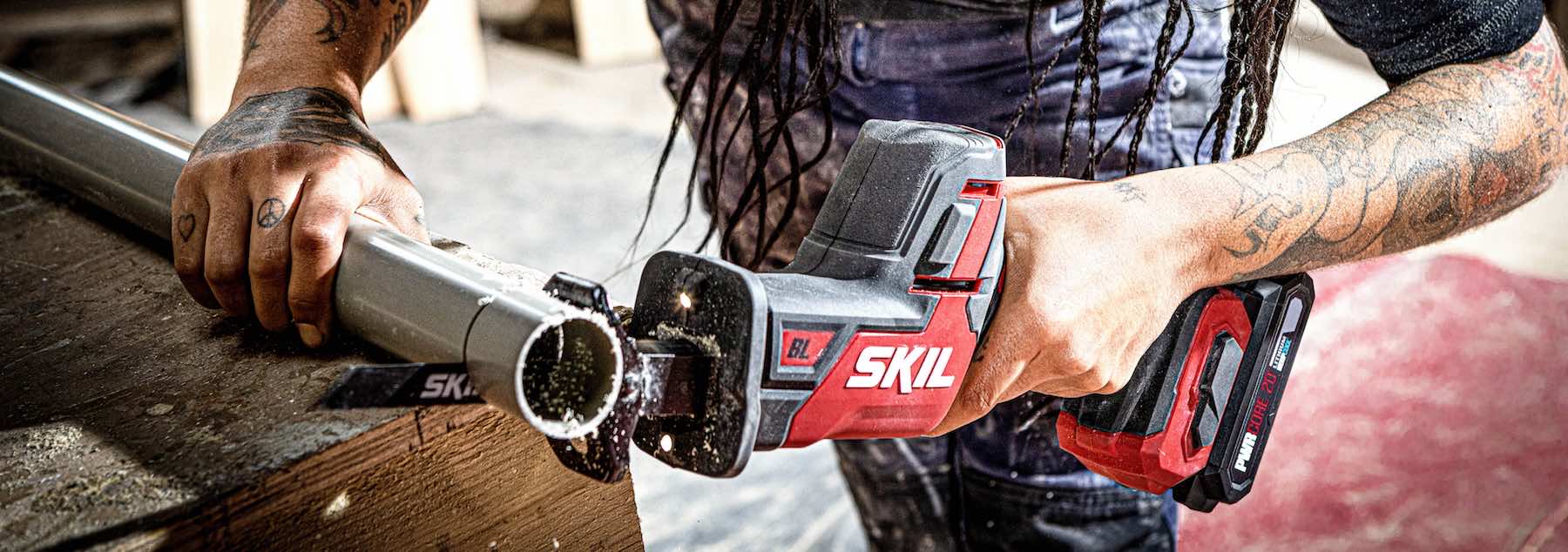-
high Performance


![Cordless reciprocating saw]()
- 'PWRCORE 20™' battery system
- 120 mm sawing capacity in wood
- Fast charger 2.4A - 1 hour
- 1x 2.0Ah 'KEEPCOOL™' Li-Ion battery
-
high Performance


![Cordless reciprocating saw]()
- 'PWRCORE 20™' battery system
- 120 mm sawing capacity in wood
- Fast charger 2.4A - 75 min.
- 1x 2.5Ah 'KEEPCOOL™' Li-Ion battery
-
high Performance


![Cordless reciprocating saw]()
- 'PWRCORE 20™' battery system
- 120 mm sawing capacity in wood
- Fast charger 2.4A - 75 min.
- 1x 2.5Ah 'KEEPCOOL™' Li-Ion battery
-
high Performance


![Cordless reciprocating saw]()
- 'PWRCORE 20™' battery system
- 120 mm sawing capacity in wood
- 'PWRJUMP™' charger 6.0 A - 50 min.
- 1x 4.0Ah 'KEEPCOOL™' Li-Ion battery
Advice about tool use
-
How to get an optimal sawing performance with a reciprocating saw
Let the saw do the work for you. Applying too much forward pressure will reduce the speed of the blade, resulting in a lower working speed.Read more -
How to use variable speed on a recip saw.
A speed dial wheel – if your recip saw has one – lets you adjust the sawing speed for different materials. Generally, a high speed is used for fast cutting or softer materials such as wood, composite materials and plastics. A slow speed is generally used for more precise cutting, or for harder materials such as sheet metal, conduit and pipe.Read more -
What is the orbital setting on recip saws meant for?
If the reciprocating saw has an orbital setting, it makes the blade follow a circular movement which enables you to saw even faster in a straight line. More orbital action gives faster sawing. The less orbital action you use, the more accurate your cut.Read more




